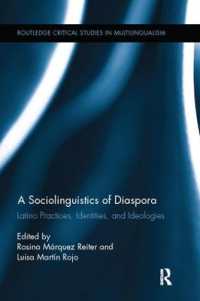Description
(Short description)
Viele Fischereimanagementsysteme sind nicht erfolgreich. Es stellt sich die Frage, was sich im Fischereirecht ändern müsste, wenn Gemeinschaftsrechte die Grundlage des Managements bilden. Wendet man diese Idee global an, könnte das gemeinsame Erbe der Menschheit eine künftige Grundlage bilden. Wenn dieses Prinzip auch für weit wandernde Fischarten wie den Atlantischen Blauflossenthunfisch gelten soll, bietet eine Analyse des Rechts, der Umweltethik und der Ökonomie hilfreiche Erkenntnisse.
(Text)
Many fisheries management systems have individual rights at their basis but are not always successful. The question is what would have to change in fisheries law when community rights form the basis of management. Applying this idea globally, the principle of the common heritage of humankind could provide a future foundation. The principle incorporates intra- and intergenerational justice and has a clear biocentric component but is now only applicable to the ocean floor beyond national jurisdiction and to celestial bodies other than Earth. If this principle would also apply to highly migratory fish species like Atlantic bluefin tuna, not only an analysis of the applicable law but also of the principle´s roots in environmental ethics, the economic consequences of such application and a comparison with the idea of public trusteeship provide helpful insights. It appears that the common heritage of humankind can enable both utilisation and preservation of natural resources.
(Table of content)
A. Introductory Remarks: Towards a Research Question - Atlantic Bluefin Tuna - Methodology - StructureB. On the Freedoms of the High Seas: Freedom of Fishing - Basis of International Fisheries Law - Cooperation in International Fisheries Management - Utilisation and Conservation in International Fisheries Law - Responsibility in International Fisheries and for the Ecosystem - Fisheries Management concerning Atlantic Bluefin Tuna - Illegal, Unreported and Unregulated FishingC. On the Common Heritage of Humankind: Towards a Marine Common Heritage - Common Heritage as Limitation of the High Seas Freedom - Comparison with Other Regimes - Difficulties of Denomination - Positive Law and Natural Law - Sources of International Law - Common Heritage: Old Wine in a New Bottle? - Common Heritage in International Fisheries LawD. On Justice Between Humans and Their Natural Environment: Intragenerational Justice - Peaceful Use as a Prerequisite for Justice - Intergenerational Justice - Biocentric Justice - The Price of Conservation - Justice in International Fisheries LawE. On Public Trusteeship: Management and Public Trusteeship - Non-Appropriation as a Prerequisite for Public Trusteeship - Public Trusteeship in Contemporary Fisheries Management - Public Trusteeship in Fisheries de lege ferenda - Economic Aspects of Public Trusteeship in FisheriesF. By Way of Conclusion: Picking up the ThreadsLegal InstrumentsCasesBibliography, Person and Subject Index
(Author portrait)
Erik van Doorn is a research associate at the Walther Schücking Institute for International Law at Kiel University and a postdoctoral researcher at the GEOMAR Helmholtz Centre for Ocean Research Kiel, both in Germany. He studied in Groningen, Utrecht and Tromsø. Erik has worked in the legal office of the International Tribunal for the Law of the Sea in Hamburg. In his research, he focuses on marine resources, marine spatial planning, aspects of marine uptake of carbon dioxide and the framework for ocean observing. Since 2017, Erik has been member of the Scientific Steering Committee of the international project Surface Ocean - Lower Atmosphere Study (SOLAS).







